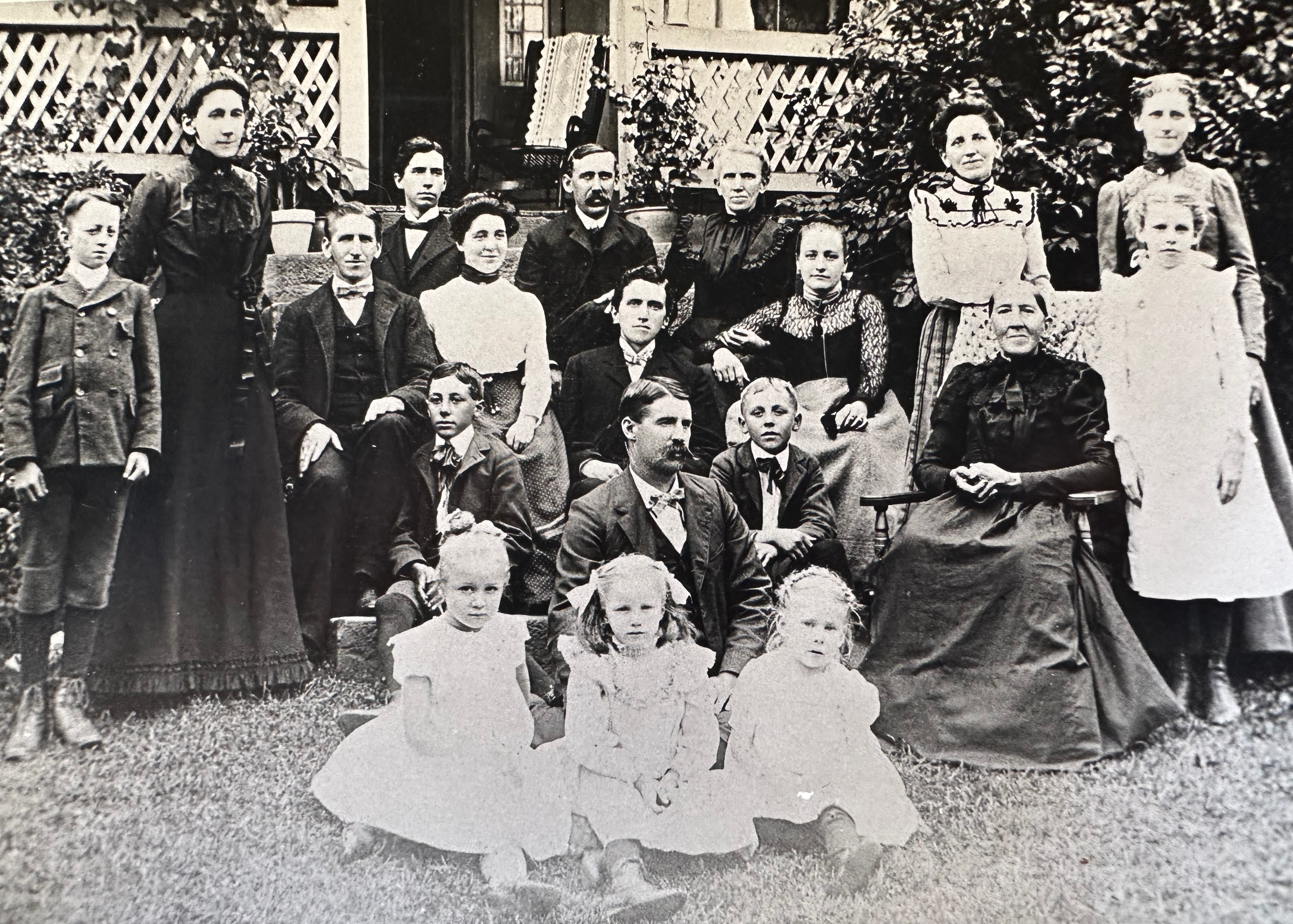Becoming An Ancestor...
Photo of my ancestors - Grandfather Alleshouse in upper left of last row, next to Great Uncle Sam Schauweker, and my Great Grandmother Lucinda.
As I was picking at some gunk in the bottom of the slow cooker, it hit me - I’m just like my mom - the woman obsessed over the ditzely details of cleaning the kitchen while forgetting to turn on or off the oven for the casserole.
It can be startling to recognize one's mother in the mannerisms of one’s self. Particularly those that are clearly the result of nurture versus nature.
It’s something I’ve been thinking a lot about since last week when our Rabbi launched the Days of Awe with a sermon on becoming an ancestor that elicits good memories. This is the period of days when we are to reflect on our behaviors over the year past, repent for harm or hurts we’ve caused, and remember our ancestors and their impact on our lives.
I consider myself lucky with the array of ancestors I can count. My father’s family arrived in this country in the late 1700s, with my Great-Great-Great Grandfather Frederick appearing in the first U.S. Census of 1790 in Pennsylvania. His son Ludwig, or Lewis, moved his family to the frontier of Ohio in 1818.
This family history was all meticulously documented by my Uncle Paul, Dad’s youngest brother. It was his wife - Aunt Marge - who provided the critical nudge for him to compile a remarkably rich history of our family in this country. Thanks to Uncle Paul, we have tales of the reputation of our Great Great Grandmother Mary Conrad and her colorful personality featuring clay pipes smoked in the garden.
I know my Alleshouse ancestors as “gentlemen farmers”, engaged with their church community, musically gifted, with creative arts talents we inherited in the form of beautiful quilts stitched by my grandmother. I knew my grandfather as a quiet, thoughtful soul who had a way with bees, resulting in luscious honeycombs of honey on his dining room table.
I know less about my Blue ancestors - other than they had family above and below the Mason-Dixon line during the Civil War, making for awkward family reunions for the next hundred years.
Harvesting a red tomato in Minneapolis today takes me back 60 plus years to Grandma’s large garden behind her house in Deshler, Ohio, as she handed me one of her prize picks with a gentle, “Try this, Mary Margaret”. I’ll chase the flavor of those warm fresh tomatoes as long as I live.
My birth family also landed in this nation as it was being born, ending up in Eastern Tennessee. My new-found family tells stories of Grandpa Arnold’s talents making moonshine as a way to pay the taxes on their extensive properties, before tragedy took Grandma. That led him to the mountains of West Virginia where he could earn enough to feed his five children in the coal mines.
Apparently my birth mother wasn’t interested in remaining in Welch, as she hightailed it to Columbus, Ohio when she learned she was pregnant. There she gave birth to me, her only child, promptly found a job, got an education, married, and never told a soul of my existence.
I certainly don’t blame her for that, as the 1950s were a rather punitive period for unwed mothers.
My parents, on the other hand, were thrilled to finally have their baby after years of trying. I went home from the hospital, lying on a blanket in the backseat of my parents’ car with my father driving so slowly that my mother remarked on it to the day she died.
All of this leads to the challenge our Rabbi posed in his sermon. What kind of ancestor do we want to be to those who come after us? How will we be remembered?
I have a few more days until Yom Kippur closes out, and the allegorical Book of Life is slammed shut for the year. So as the pace of current events swirl around us at dizzying speeds, I find myself wanting to pick at small drippings on the inner base of the slow cooker while I ponder the stories I hope to leave with our children and their children.
